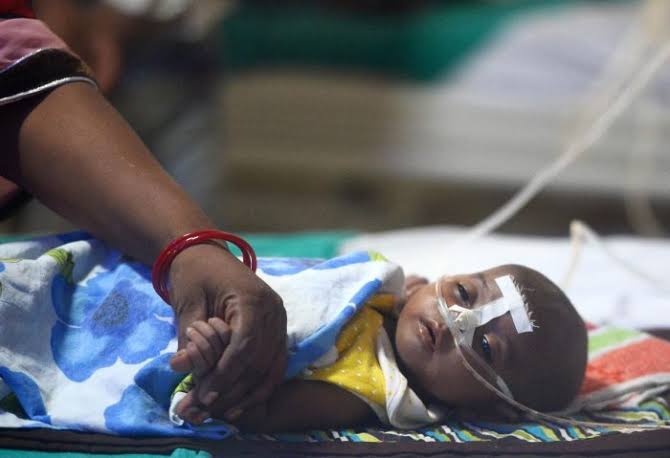
By Surajo Ahmad Alkali
Child mortality has a major challenge to public health amongst families in Nigeria and other developing countries. The danger of Continue child mortality has been a major concern and this calls for studies to generate new scientific evidence to determine its prevalence and explore predisposing factors associated with it.
Nigeria, in the past few years has experienced some worsening of child mortality . The infant mortality rate evaluated at 100 per 1000 in 2003 was measured at 87 in 1990. This can be in part explained by the persisting low numbers of births occurring in health facilities and the low number of births attended by trained healthcare service providers. In 2003, 2 to 3 percent of birth was occurring at home. In addition only Not more than 2 percent visiting a doctors, nurses, or midwives during pregnancy and birth time. In 2000 the maternal mortality ratio in Nigeria was 800 per 100 000 live births.
It is apparent through the highest mortality rates that the lack of access to use of quality delivery services is an issue of immense importance in Nigeria. Problems such as obtaining money for treatment, distance to health facility.
Childhood mortality is a fundamental measurement of a country’s level of socio-economic and demographic development, and quality of life, especially of families.
However, In 2010, there was a global estimate of 7.6 million child deaths with most occurring in less developed countries. Among those, 4.7 million died from infection and disorder.
Child mortality is not only caused by infection and disorder: it is also caused by premature birth; birth defect; new born infection; birth complication; and diseases like malaria, sepsis, and diarrhea.
In less developed countries, malnutrition is the main cause of child mortality.Pneumonia, diarrhea, and malaria together are the cause of 1 out of every 3 deaths before the age of 5 while nearly half of under-five deaths globally are attributable to under-nutrition.
Child mortality rates related to Breathing and diarrheal diseases can be reduced by introducing simple behavioral changes, such as handwashing with soap. This simple action can reduce the rate of mortality from these diseases by almost 50 per cent.
The consequences of the poor state of pregnant women in Nigeria are numerous and affect maternal as well as child mortality. The under five mortality ratio in Nigeria is 201 per 1000 live births meaning that one in five Nigerian children never reach the age of 5. Infant deaths, which account for half of child mortality have increased from what they were in 1990. With a 13% immunization rate for children between 12-23 months, Nigeria is the African country with the lowest vaccination rate. Substantial presence of Acute Breathing Infections and diarrhoea also contribute to the elevated mortality rates for children.
Essential newborn care – including immunizing mothers against tetanus, ensuring clean delivery practices in a hygienic birthing environment, drying and wrapping the baby immediately after birth, providing necessary warmth, and promoting immediate and continued breastfeeding, immunization, and treatment of infections with antibiotics – could save the lives of 3 million newborns annually.
The lack of trained health care attended births in Nigeria is compounded by the fact that only six in ten mothers receive antenatal care from a trained medical professional. Nurses and midwives are the most frequently used source of healthcare. Good antenatal care can prevent the major causes of neonatal mortality in Nigeria.neonatal tetanus, malaria, and maternal anemia.
However, as of 2003 only 58 percent of pregnant women received iron supplements and only 39 received drugs to prevent malaria.Improved sanitation and access to clean drinking water can reduce childhood infections and diarrhea. Over 30% of the world’s population does not have access to basic sanitation, and 844 million people use unsafe sources of drinking water. this may threats in their lives.
Surajo Ahmad Alkali writes from Mass Communication Department, Abubakar Tatari Ali Polytechnic Bauchi.


